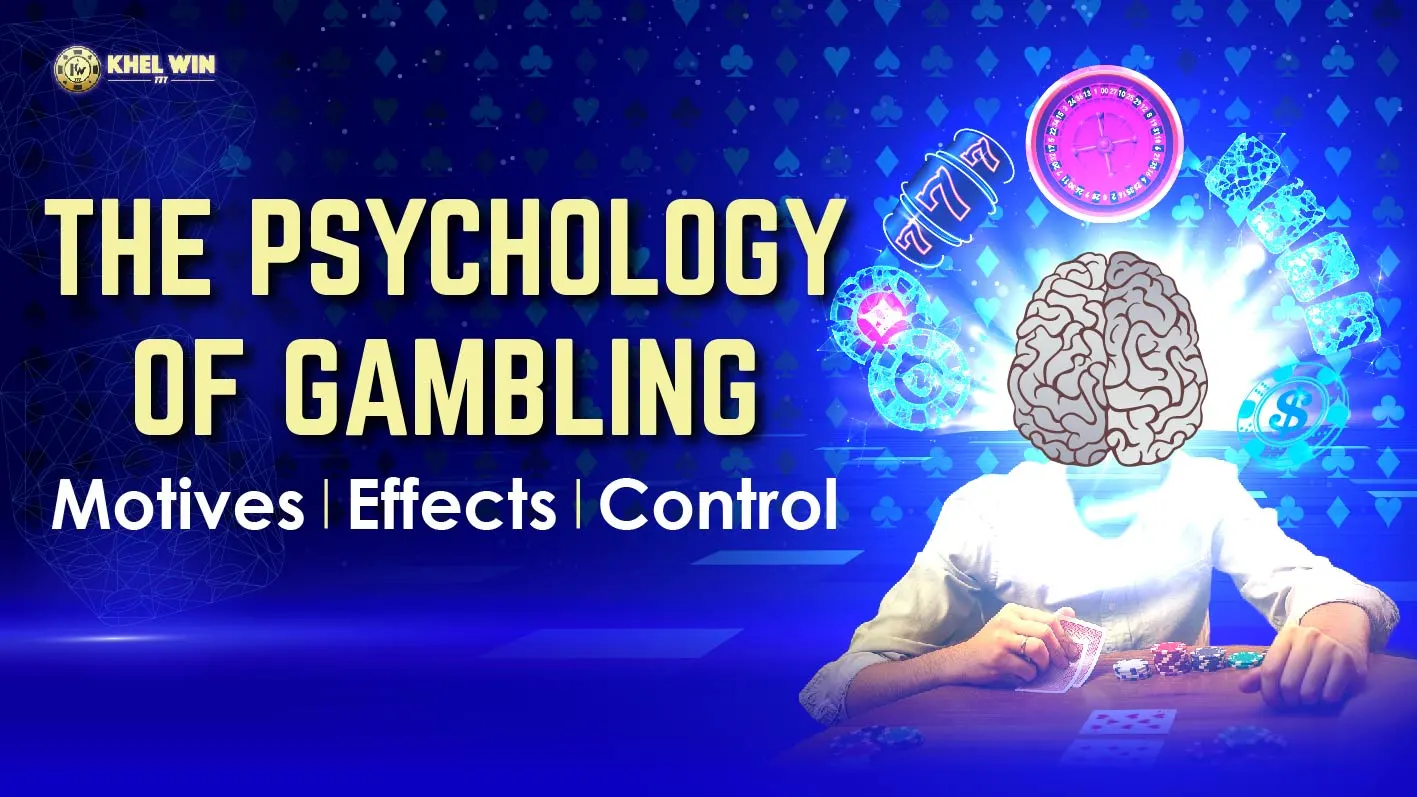

Table of Contents
The psychology of gambling has long been an important topic of discussion, as it is a popular activity that attracts people of all ages and backgrounds in India. Gambling is a form of entertainment that has spread to many different countries, with millions of people partaking in various forms of gambling every day.
From the lottery to casinos to sports betting to online gambling, it is a complex and ever-growing industry with a large number of online casino real money India. However, beneath the excitement and thrill of gambling lies a complex psychological phenomenon that drives people to gamble and shapes their behavior and attitudes towards gambling, including the problematic behavior known as problem gambling.

In this article, we will talk about the psychology of gambling, including what drives people to gamble, how compulsive gambling affects mental health, and how to control gambling behavior.
Table of Contents
The psychology of gambling is a complex subject that looks at the various motivations, mental processes, and emotions that influence why people choose to gamble. The potential for financial gain is a major factor that drives people to gamble, but many other psychological factors are also at play.
Understanding this can help us better understand why people gamble and the behaviors associated with it. For many people, gambling provides a form of escape from the stresses and challenges of everyday life.
The thrill of the game, the excitement of the unknown, the opportunity to socialize with others, as well as the chances of winning, can all contribute to the appeal of gambling.
In addition to these motivational factors, several psychological factors can influence gambling behavior, including the psychology of gambling. The concept of reinforcement is one of the most significant of these factors, as it refers to the idea that behaviors that are rewarded are more likely to be repeated, while behaviors that are punished are less likely to be repeated.
In the context of gambling, reinforcement can be a powerful factor in the development of gambling addiction, especially in individuals who may be predisposed to addiction, such as those with a history of “gambling addict” or a family history of addiction.
When people win, they experience a rush of pleasure and excitement that can reinforce their gambling behavior. This reinforcement can make it difficult for individuals to stop gambling, as they become hooked on the feeling of winning.
Another psychological factor that influences gambling behavior is the psychology of gambling cognitive bias. A cognitive bias refers to the tendency of the human brain to process information in a way that supports pre-existing beliefs or desires and, as such, may be considered one of the key risk factors associated with gambling behavior.
In the context of gambling, cognitive bias can manifest in a variety of ways. For example, a gambler may overestimate their chances of winning, leading them to place larger bets than they should, influenced by their personal choice and interest in gambling games, as well as the reward system associated with it.
The psychology of gambling can lead to cognitive biases that may cause people to underestimate the risks associated with gambling or focus only on the positive outcomes rather than the negative ones.
You may be Interested In Role of Artificial Intelligence in Online Gaming
While gambling can be a source of entertainment and enjoyment for many people, it can also have a significant impact on mental health. Problem gambling, or gambling addiction, is a serious mental health issue that affects millions of people worldwide. Problem gamblers often struggle with negative emotions and have a hard time controlling their gambling behaviors.
The psychology of gambling can play a role in the negative consequences experienced by problem gamblers, including financial problems, relationship difficulties, and mental health issues such as anxiety and depression.
One of the primary ways that gambling can impact mental health is through the stress and anxiety associated with the activity, particularly when large amounts of money are at stake. Gambling can be an intense and high-stakes experience, and the pressure to win can be overwhelming for some individuals.
The stress and anxiety associated with gambling can lead to a range of mental health issues, including anxiety disorders, panic attacks, and depression. In addition to the stress and anxiety associated with gambling may also experience a range of other mental health issues, such as pathological gambling.
The psychological effects of gambling can include low self-esteem, social isolation, feelings of hopelessness or despair, and even the development of gambling addiction. The psychology of gambling is often a factor for problem gamblers, as they may seek out gambling as a way of coping with their emotions or as a form of escape from reality.
While gambling addiction is a serious issue, there are strategies that individuals can use to manage their gambling behavior and reduce the risk of developing a problem. One of the most effective strategies is to set limits on forms of gambling behavior.
One of the most effective strategies for controlling brain activity related to gambling is to set limits on gambling behavior. This can include setting a budget for gambling and only gambling with money that one can afford to lose.
It can also involve setting time limits for gambling and avoiding gambling when feeling stressed or overwhelmed, just like recognizing the signs of drug addiction. Another effective strategy for managing gambling behavior is seeking professional help.
Many individuals who struggle with problem gambling find it helpful to seek support from a therapist or counselor who specializes in addiction treatment as well as in understanding the underlying psychology of gambling addiction and the brain activity associated with it.
These professionals can provide guidance and support for managing the psychological factors that contribute to compulsive gambling addiction and developing healthy coping mechanisms to deal with stress and anxiety related to it.
It is important for individuals to develop a support system of family and friends who can provide encouragement and hold them accountable for their gambling behavior, while also understanding the psychology of gambling addiction. Friends and family can provide emotional support, help identify problematic behaviors, and encourage individuals to seek help when needed.
In conclusion, the psychology of gambling is a complex phenomenon that is driven by a range of motivational, cognitive, and emotional factors. While gambling can be an enjoyable and entertaining activity for many people, it can also have a significant impact on mental health, particularly for those who struggle with problem gambling.
Effective strategies for managing gambling behavior include setting limits on gambling, seeking professional help, and developing a support system of family and friends. By understanding the psychology of gambling, including the illusion of control and the opportunity to gamble, and taking steps to manage gambling behavior, individuals can reduce the negative impacts of gambling on their mental health and enjoy the activity in a responsible and healthy way.
If you are searching for the top-notch online casino to try your luck this year you can always remember Khelwin777 is the ultimate destination. With a plethora of games ranging from the timeless classics like Blackjack and real online slot games to more skill-based options like poker and baccarat, players are sure to be spoilt for choice.
Whether you are a seasoned gambler or a newbie, there is a game to suit everyone’s preferences. So, why not seize the opportunity and visit Khelwin777, the best online casino in India, to experience the thrills of these games firsthand? And to make it even more exciting, the platform offers a variety of promotions and bonuses to enhance your gaming experience. Don’t miss out on the fun; sign up today and try your luck at winning big!